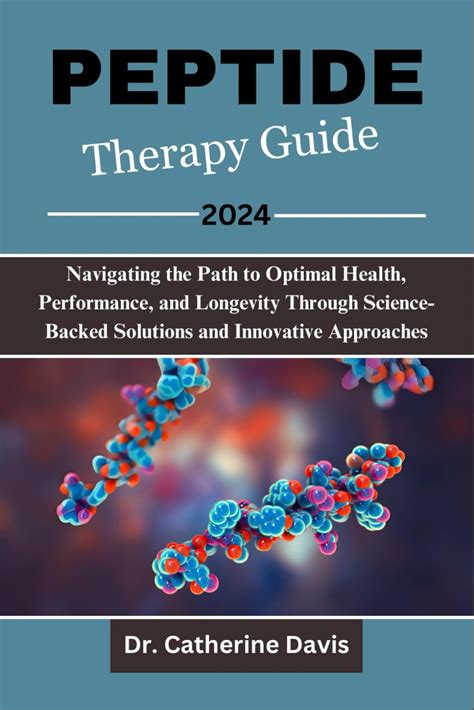Peptides: Your Path to Optimal Health (How Long?)
Peptides are short chains of amino acids, the building blocks of proteins. While proteins are long, complex chains, peptides are smaller, more targeted molecules with diverse and potent effects on the body. Interest in peptides for their health benefits has exploded, but the question remains: how long does it take to see results, and what factors influence that timeline? The answer, unfortunately, isn't a simple number. The journey to optimal health with peptides is nuanced and depends on several key variables.
What are Peptides and How Do They Work?
Before diving into timelines, let's understand how peptides function. They act as signaling molecules, binding to specific receptors on cells to trigger various biological processes. This targeted action makes them potent tools for addressing specific health concerns. Different peptides have different functions; some stimulate muscle growth, others aid in fat loss, while some support joint health or improve sleep quality. The mechanism varies depending on the specific peptide.
How Long Does It Take to See Results From Peptides?
There's no single answer to this question. The timeframe for noticeable results varies greatly depending on several factors:
1. Type of Peptide: Different peptides have different mechanisms and thus different timelines for effect. Some, like those promoting muscle growth, might show noticeable changes within weeks, while others requiring more systemic changes, such as those influencing skin health, may take months.
2. Dosage and Administration: The dosage prescribed, frequency of administration (oral, injection, topical), and individual metabolism all significantly affect the speed and extent of results. Higher doses generally lead to faster effects, but always consult with a healthcare professional to determine the appropriate dosage.
3. Individual Factors: Individual responses to peptides vary significantly due to genetics, lifestyle, diet, overall health, and the presence of other underlying health conditions. What works quickly for one person might take longer for another.
4. Combined Therapies: Peptides often work best as part of a holistic approach incorporating a balanced diet, regular exercise, sufficient sleep, and stress management. A comprehensive lifestyle approach typically accelerates results.
What are the Common Peptides and Their Typical Timelines? (Approximate)
It's crucial to understand that these are estimates and individual experiences can vary widely. Always consult a healthcare professional before using peptides.
-
Muscle Growth Peptides (e.g., BPC-157, TB-500): Some users report noticeable improvements in muscle recovery and growth within a few weeks, though significant gains usually require several months of consistent use.
-
Fat Loss Peptides: These peptides can enhance fat metabolism, but noticeable results usually require several weeks to months of combined effort with diet and exercise.
-
Joint Health Peptides (e.g., BPC-157, TB-500): These peptides may alleviate joint pain and promote healing, but improvement can take weeks or even months depending on the severity of the condition.
-
Sleep-Promoting Peptides: These can improve sleep quality within days or weeks, though sustained effects often require consistent use.
H2: Are There Any Side Effects?
While peptides are generally well-tolerated, potential side effects can occur, depending on the specific peptide and dosage. These may include mild reactions such as redness at the injection site (for injectable peptides), nausea, or headaches. Severe side effects are rare but possible. Always consult a medical professional to discuss any potential risks.
H2: How to Maximize Results with Peptides?
Optimizing the effects of peptides requires a holistic approach:
- Consult a Healthcare Professional: This is crucial for determining the appropriate peptide, dosage, and administration method. They can also help monitor for potential side effects.
- Maintain a Healthy Lifestyle: Combine peptide use with a balanced diet, regular exercise, adequate sleep, and stress management for optimal results.
- Consistency is Key: Consistent use, as prescribed by your healthcare professional, is essential for achieving and maintaining desired outcomes.
- Patience: Remember that results take time. Don't get discouraged if you don't see immediate results; consistent use and a holistic approach are crucial.
Conclusion:
Peptides offer a promising avenue for optimizing health, but the journey to noticeable results is individual and multifaceted. The timeframe varies significantly depending on the type of peptide, dosage, individual factors, and overall lifestyle. A collaborative approach with a healthcare professional, a commitment to a healthy lifestyle, and realistic expectations are key to safely and effectively harnessing the potential benefits of peptides. Remember, this information is for educational purposes only and is not a substitute for professional medical advice.

